International
The Government of Ecuador decrees a curfew in six provinces during a national blackout
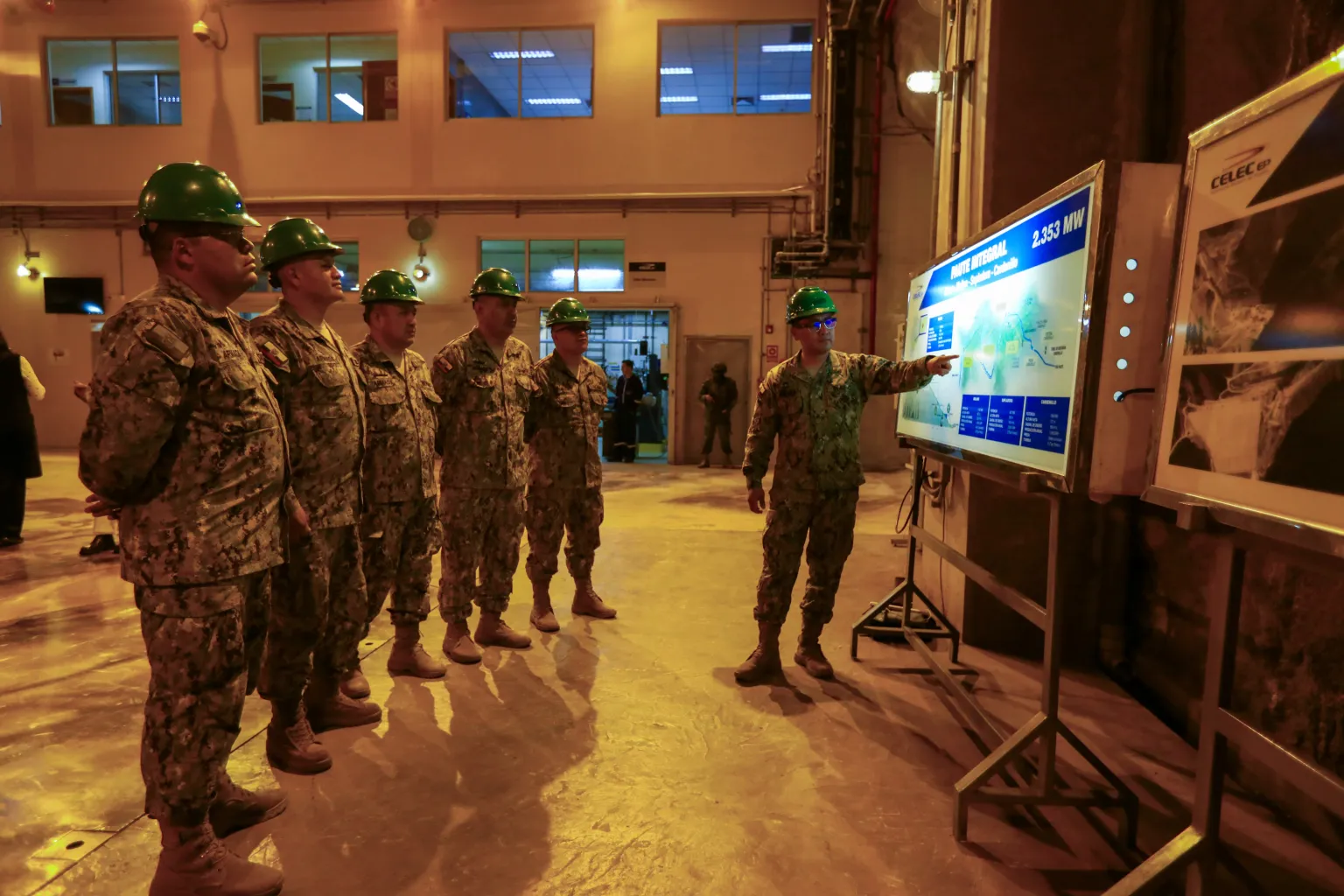
The Government of Ecuador decreed a curfew in six provinces and one canton (municipality) of a seventh province during the eight hours that the power outage will last throughout the country, which will begin at 22:00 local time (03:00 GMT) on Wednesday.
The curfew will govern in the coastal provinces of Guayas, Los Ríos, Manabí, Orellana, Santa Elena, El Oro and in the municipality of Camilo Ponce Enríquez, in the province of Azuay.
In these same areas there is currently a state of emergency in force to face the organized crime gangs that operate in Ecuador, mainly dedicated to drug trafficking, and whose violence has led the country to register in 2023 the highest homicide rate in Latin America, with 47.2 per 100,000 inhabitants.
The Presidency indicated that police and military will strengthen their actions to ensure citizen and country security, “with special attention to the cantons (municipalities) and parishes in which this suspension of freedom of transit governs.”
He said that, in due course, he will communicate other complementary measures that they consider necessary depending on the situation next week.
Wednesday’s blackout was initially attributed by the Government to maintenance in the national electrical infrastructure to face a new period of electricity rationing due to lack of generation in the main hydroelectric power plants in Ecuador, before what the Executive described as the worst dry season of the last 61 years.
But on Monday night, the Administration of President Daniel Noboa anticipated that from Monday to Thursday of next week there will also be eight-hour blackouts during the nights throughout the country, due to the impossibility of supplying the national demand for electricity.
During these blackouts, the Police will deploy more than 46,000 agents nationwide to carry out patrols that will focus especially on financial institutions, residential complexes, fuel service stations and prisons.
This was anticipated on Tuesday by the Chief of Police for the Metropolitan District of Quito, Henry Román, who pointed out that there will be police controls at the entrances and exits of the main cities of the country, where all vehicles will be inspected.
For its part, it is expected that the military will take control of the Mazar reservoir, the second largest in the country, as provided by Noboa in the previous days to avoid sabotage in this critical infrastructure for the supply of national electricity demand.
The Mazar reservoir, located in the southern Andean province of Azuay, has a capacity of 410 million cubic meters of water and serves to supply a complex of three hydroelectric plants located in the Paute River basin with an installed capacity of 1,757 megawatts.
However, in recent days the level of this water reserve has dropped drastically due to the prolonged absence of rain.
International
U.S. to suspend visa processing for applicants from 75 countries
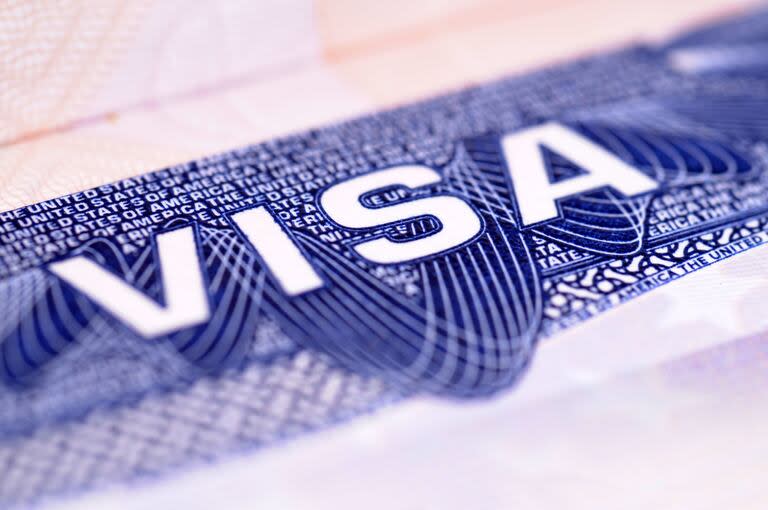
The United States announced on Wednesday that it will suspend visa processing for applicants from 75 nationalities, marking another move by President Donald Trump’s administration to curb the entry of migrants into the country.
“ The United States is freezing the processing of all visas for 75 countries, including Somalia, Russia and Iran,” White House Press Secretary Karoline Leavitt wrote on X. According to Fox News, the measure will take effect on January 21 and will remain in force indefinitely.
Based on an internal State Department memorandum obtained by Fox News Digital, consular officers have been instructed to deny visa applications under existing law while the agency conducts an in-depth review of screening and vetting procedures. The stated goal is to tighten criteria to prevent the entry of foreigners who could eventually rely on public assistance.
The list of affected countries includes several nations in Latin America and the Caribbean, as well as Afghanistan, Russia, Iran, Iraq, Egypt, Nigeria, Thailand, Somalia and Yemen, among others. Fox News reported that exemptions to the suspension will be “very limited” and will only be granted once applicants pass an assessment related to the public charge requirement.
Other countries in the Americas subject to the suspension include Antigua and Barbuda, the Bahamas, Barbados, Belize, Cuba, Dominica, Grenada, Guatemala, Haiti, Jamaica, Nicaragua, Saint Kitts and Nevis, Saint Lucia, and Saint Vincent and the Grenadines.
The decision is based on a strict interpretation of the so-called “public charge” clause of U.S. immigration law. A cable sent to U.S. consulates worldwide in November 2025 had already signaled the shift, instructing officials to apply tougher standards when evaluating applicants, taking into account factors such as age, health status, English proficiency, financial situation, history of public assistance, and even the potential need for long-term medical care.
International
Peruvian Court Orders Definitive Dismissal of Money Laundering Case Against Keiko Fujimori
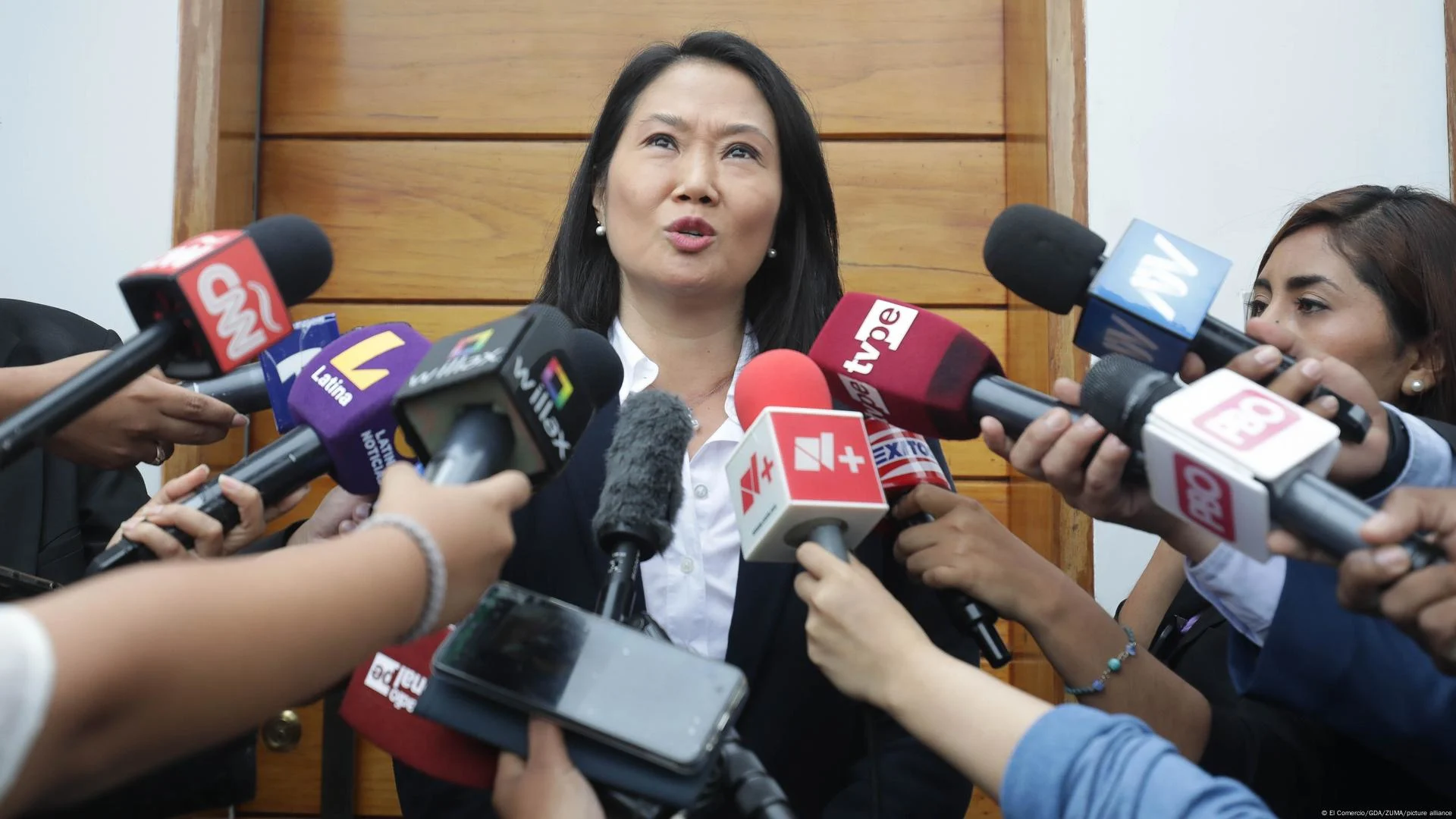
A court of Peru’s National Superior Court of Specialized Criminal Justice ordered the definitive dismissal of the criminal proceedings for alleged money laundering and criminal organization against presidential candidate Keiko Fujimori, authorities reported on Tuesday, January 13, 2026.
The ruling was issued by the Tenth National Preparatory Investigation Court in compliance with a previous decision by the Constitutional Court (TC). The decision was confirmed by Fujimori’s attorney, Giuliana Loza, who said on social media platform X that “there was no money laundering nor criminal organization.”
According to the defense, the case was closed for lacking legal grounds and for violating due process. “The proceedings concluded because they lacked a legal basis and constituted clear prosecutorial persecution,” Loza stated.
Judge Wilson Verastegui, whose ruling was reported by local media, said the Constitutional Court determined that the facts alleged in the so-called ‘Cocktails Case’ do not constitute a criminal offense under the principle of legality. The court noted that the crime of illegal financing of political organizations was not in force at the time the alleged acts occurred.
The dismissal also applies to other leaders of the Fuerza Popular party, including Pier Figari, Ana Rosa Herz, Jaime Yoshiyama and José Chlimper, as well as the party itself.
Keiko Fujimori, daughter of former president Alberto Fujimori (1990–2000), had been under investigation for the alleged irregular financing of her 2011 and 2016 presidential campaigns, a case that exposed her to a possible 30-year prison sentence. However, one year ago the National Superior Court annulled the trial and returned the case to the intermediate stage.
Fujimori is currently pursuing her fourth presidential bid, ahead of Peru’s general elections scheduled for April.
International
Colombian Defense Chief Meets U.S. Officials to Advance Bilateral Narcotics Strategy
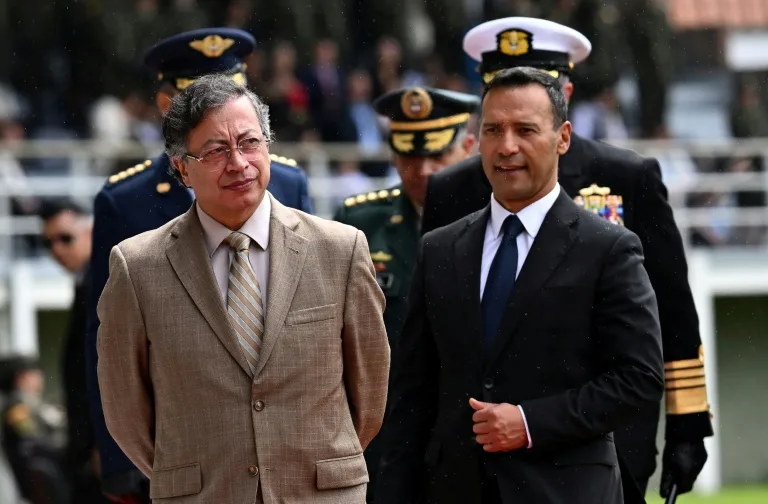
Colombia’s Minister of Defense, Pedro Sánchez Suárez, is in the United States this Tuesday and Wednesday to discuss bilateral cooperation in the fight against drug trafficking, Colombian officials said, in a visit that comes as ties between Bogotá and Washington begin to ease after a period of diplomatic tension.
The trip is seen as a prelude to a scheduled visit by Colombian President Gustavo Petro to Washington, where he is expected to meet U.S. President Donald Trump for the first time in early February. Sánchez will remain in Washington through Wednesday, according to Colombian government sources.
During his stay, Sánchez is slated to meet with senior U.S. officials, including representatives from the Department of Defense, members of the U.S. Senate, and White House advisors, to outline a joint strategy to “defeat drug trafficking” and expand cooperation on intelligence against transnational crime.
According to a statement from the Colombian Defense Ministry, the agenda will include strengthening collaboration on technology, intelligence sharing, and efforts to disrupt criminal networks that operate across borders. Officials said the discussions will also help set the stage for Petro’s upcoming talks with Trump.
The visit follows a period of strained U.S.–Colombia relations last year, when Washington revoked Petro’s visa and withdrew Colombia’s certification as a key partner in anti-drug efforts — moves that coincided with disagreements over counter-narcotics strategy and broader diplomatic frictions. However, a recent phone call between Petro and Trump, described as cordial by officials, helped lower tensions and reopened channels for dialogue ahead of the presidential meeting.
-

 International2 days ago
International2 days agoDeadly van accident near Brazil border leaves 11 dead in Bolivia
-
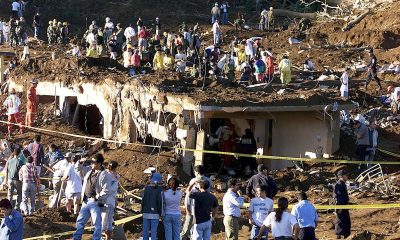
 Central America2 days ago
Central America2 days agoTaiwan’s $10 million donation after 2001 earthquakes allegedly diverted in El Salvador
-

 Central America2 days ago
Central America2 days agoU.S. and El Salvador maintain close partnership, embassy says
-
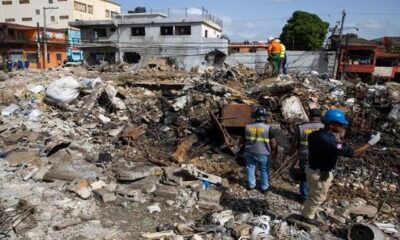
 International2 days ago
International2 days agoDominican court postpones hearing in deadly nightclub collapse case
-

 International2 days ago
International2 days agoU.S. to host Danish and Greenlandic Foreign Ministers at the White House
-

 International2 days ago
International2 days agoPolice hunt gunmen after fatal shooting in Corsica
-
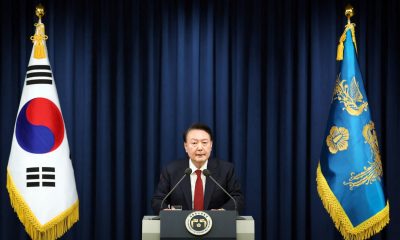
 International2 days ago
International2 days agoEx-President accused of bid to establish dictatorship as verdict nears in South Korea
-

 International2 days ago
International2 days agoVenezuelan opposition leader dedicates Nobel Prize to Trump
-
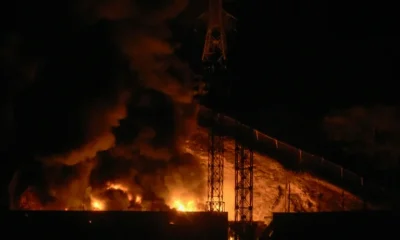
 International5 days ago
International5 days agoU.S. strike in Caracas killed 32 cuban security officers, experts say surprise was crucial
-
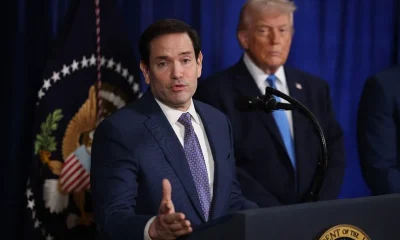
 International4 days ago
International4 days agoU.S. Issues Urgent Evacuation Call for Citizens in Venezuela
-
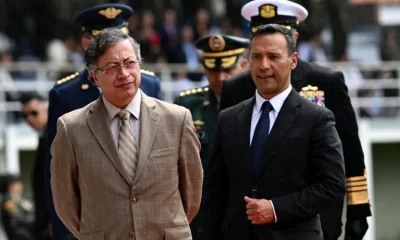
 International21 hours ago
International21 hours agoColombian Defense Chief Meets U.S. Officials to Advance Bilateral Narcotics Strategy
-

 Central America13 hours ago
Central America13 hours agoBukele warns crime can become a ‘parallel government’ during visit to Costa Rica
-
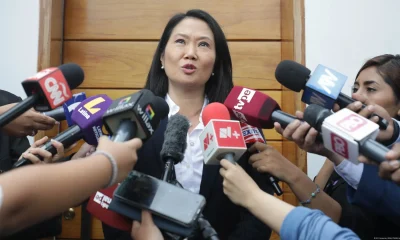
 International21 hours ago
International21 hours agoPeruvian Court Orders Definitive Dismissal of Money Laundering Case Against Keiko Fujimori
-

 International13 hours ago
International13 hours agoU.S. to suspend visa processing for applicants from 75 countries


























